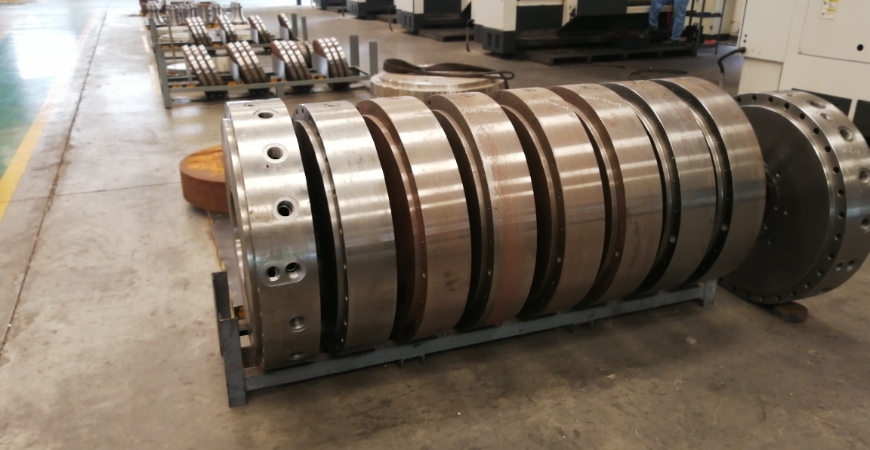Demystifying the Piston Reciprocating Compressor: Guide

Hello there, fellow readers and compressor enthusiasts! If you’ve ever wondered what a piston reciprocating compressor is and how it can be a game-changer for various applications, you’ve come to the right place. In this article, I’ll be your friendly guide, explaining what a piston reciprocating compressor is, how it works, its advantages, and where you can find quality compressors like these.
What Is a Piston Reciprocating Compressor?
Let’s start with the basics. A piston reciprocating compressor, often simply called a reciprocating compressor, is a type of mechanical device used to compress gases. It’s a versatile workhorse that plays a vital role in a wide range of industries, from manufacturing and energy production to refrigeration and air conditioning.
The Key Components
At its core, a reciprocating compressor consists of two essential components:
- Piston: The piston is a movable component inside a cylinder. It moves back and forth (reciprocates) to compress the gas.
- Cylinder: The cylinder is a tube in which the piston moves. The gas to be compressed enters the cylinder, and as the piston moves, it reduces the volume of the gas, thereby increasing its pressure.
How Does a Piston Reciprocating Compressor Work?
Now, let’s dive into how this compressor operates in a straightforward manner.
Step 1: Gas Intake
The process begins as the compressor’s intake valve opens, allowing gas (often air) to enter the cylinder.
Step 2: Compression
As the piston moves downward, it reduces the volume of the cylinder, causing the gas inside to be compressed. This compression increases the pressure of the gas.
Step 3: Gas Discharge
Once the gas reaches the desired pressure, the discharge valve opens, allowing the compressed gas to exit the cylinder.
Step 4: Repeat
The cycle repeats continuously, with the piston moving back and forth, compressing and discharging the gas as needed.
Advantages of Using a Piston Reciprocating Compressor
Now that you understand how a reciprocating compressor works let’s explore some of its key advantages:
1. Reliability
Piston reciprocating compressors are known for their reliability and durability. They are capable of handling heavy-duty tasks and can run continuously without significant issues when properly maintained.
2. Versatility
These compressors are incredibly versatile and can be used in a wide range of applications, from powering pneumatic tools to supplying compressed air for industrial processes.
3. Cost-Effective
Reciprocating compressors are often more cost-effective than other types of compressors, making them an attractive option for businesses and DIY enthusiasts on a budget.
4. Easy Maintenance
Maintenance of piston reciprocating compressors is relatively straightforward, with components that are easy to access and replace when necessary.
5. High Pressure Capability
These compressors can generate high-pressure outputs, making them suitable for applications that require substantial pressure, such as gas pipelines or chemical processes.
Choosing the Right Piston Reciprocating Compressor
If you’re considering getting a reciprocating compressor, here are some steps to help you choose the right one for your needs:
Step 1: Determine Your Requirements
Start by identifying your specific requirements, including the desired pressure, flow rate, and the type of gas you’ll be compressing. Knowing your needs is the first step in selecting the right compressor.
Step 2: Consider Size and Portability
Consider the physical size and portability of the compressor. Will it fit in your workspace, and can you easily move it to where you need it?
Step 3: Think About Power Source
Reciprocating compressors can be powered by electricity or gas engines. Choose the power source that suits your situation and availability.
Step 4: Evaluate Brands and Models
Research and compare different brands and models of reciprocating compressors. Read user reviews, and look for recommendations from experts to ensure you’re getting a reliable product.
FAQs About Piston Reciprocating Compressors
Now, let’s address some common questions people often have about these compressors.
Q1: Can a reciprocating compressor be used for air conditioning?
A: Yes, reciprocating compressors are commonly used in air conditioning systems. They are particularly suited for smaller cooling applications and can be found in residential and commercial units.
Q2: Are these compressors noisy?
A: Reciprocating compressors can be noisier than some other compressor types. However, advancements in technology have led to quieter models, and noise levels can vary depending on the specific compressor.
Q3: Do reciprocating compressors require a lot of maintenance?
A: While they do require regular maintenance, reciprocating compressors are relatively easy to maintain. Routine tasks may include checking and changing the oil, cleaning filters, and inspecting components for wear and tear.
Q4: Can I use a reciprocating compressor for painting?
A: Yes, reciprocating compressors can be used for painting. However, it’s essential to ensure that the compressor provides the necessary pressure and volume to meet your painting equipment’s requirements.
Q5: Can these compressors be used for home DIY projects?
A: Absolutely! Reciprocating compressors are well-suited for various DIY projects, including inflating tires, operating pneumatic tools, and powering spray guns for painting or finishing.
Conclusion
In conclusion, a piston reciprocating compressor is a versatile and reliable tool that can meet the compressed air needs of various industries and applications. Whether you’re a professional looking for a dependable compressor for your business or a DIY enthusiast working on projects, a reciprocating compressor is worth considering.
If you’re in the market for quality compressor-related products, be sure to explore CN Compressors’ offerings. They provide a range of compressor-related products that can meet your specific needs. You can find more information about their products here and here.
So, whether you’re powering tools, cooling spaces, or handling industrial processes, a piston reciprocating compressor might just be the solution you’ve been searching for. Happy compressing!
